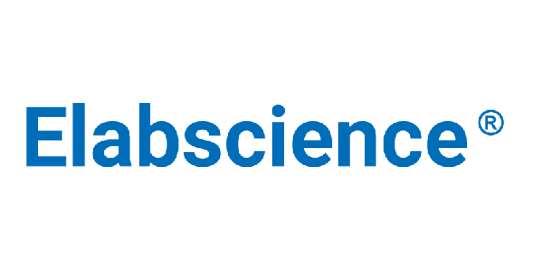Recombinant Human SIGLEC2/CD22 Protein (Fc Tag)
Recombinant Human SIGLEC2/CD22 Protein (Fc Tag)
Artikelnummer
ELSPKSH033750-10
Verpackungseinheit
10μg
Hersteller
Elabscience Biotechnology
Verfügbarkeit:
wird geladen...
Preis wird geladen...
Protein Tag: C-Fc
Uniprot: P20273
Accession: P20273
Background: CD22 is a member of the immunoglobulin superfamily, SIGLEC family of lectins. It is first expressed in the cytoplasm of pro-B and pre-B cells, and on the surface as B cells mature to become IgD+. CD22 serves as an adhesion receptor for sialic acid-bearing ligands expressed on erythrocytes and all leukocyte classes. In addition to its potential role as a mediator of intercellular interactions, signal transduction through CD22 can activate B cells and modulate antigen receptor signaling in vitro. The phenotype of CD22-deficient mice suggests that CD22 is primarily involved in the generation of mature B cells within the bone marrow, blood, and marginal zones of lymphoid tissues. CD22 recruits the tyrosine phosphatase Src homology 2 domain-containing phosphatase 1 (SHP-1) to immunoreceptor tyrosine-based inhibitory motifs (ITIMs) and inhibits B-cell receptor (BCR)-induced Ca2+ signaling on normal B cells. As an inhibitory coreceptor of the B-cell receptor (BCR), CD22 plays a critical role in establishing signalling thresholds for B-cell activation. Like other coreceptors, the ability of CD22 to modulate B-cell signalling is critically dependent upon its proximity to the BCR, and this in turn is governed by the binding of its extracellular domain to alpha2,6-linked sialic acid ligands. However, genetic studies in mice reveal that some CD22 functions are regulated by ligand binding, whereas other functions are ligand-independent and may only require expression of an intact CD22 cytoplasmic domain at the B-cell surface.
Bio Acitivity: Not validated for activity
Sequence: Asp20-Arg687
Purity: > 95 % as determined by reducing SDS-PAGE.
Formulation: Lyophilized from a 0.2 μm filtered solution of 20mM Tris-HCl, 1mM EDTA, 150mM NaCl, pH 8.0.
Normally 5% - 8% trehalose, mannitol and 0.01% Tween 80 are added as protectants before lyophilization.
Please refer to the specific buffer information in the printed manual.
Reconstitution: Please refer to the printed manual for detailed information.
Endotoxin: < 1.0 EU per μg of the protein as determined by the LAL method.
Calculated MW: 102.3 kDa
Observed MW: 120-150 kDa
Uniprot: P20273
Accession: P20273
Background: CD22 is a member of the immunoglobulin superfamily, SIGLEC family of lectins. It is first expressed in the cytoplasm of pro-B and pre-B cells, and on the surface as B cells mature to become IgD+. CD22 serves as an adhesion receptor for sialic acid-bearing ligands expressed on erythrocytes and all leukocyte classes. In addition to its potential role as a mediator of intercellular interactions, signal transduction through CD22 can activate B cells and modulate antigen receptor signaling in vitro. The phenotype of CD22-deficient mice suggests that CD22 is primarily involved in the generation of mature B cells within the bone marrow, blood, and marginal zones of lymphoid tissues. CD22 recruits the tyrosine phosphatase Src homology 2 domain-containing phosphatase 1 (SHP-1) to immunoreceptor tyrosine-based inhibitory motifs (ITIMs) and inhibits B-cell receptor (BCR)-induced Ca2+ signaling on normal B cells. As an inhibitory coreceptor of the B-cell receptor (BCR), CD22 plays a critical role in establishing signalling thresholds for B-cell activation. Like other coreceptors, the ability of CD22 to modulate B-cell signalling is critically dependent upon its proximity to the BCR, and this in turn is governed by the binding of its extracellular domain to alpha2,6-linked sialic acid ligands. However, genetic studies in mice reveal that some CD22 functions are regulated by ligand binding, whereas other functions are ligand-independent and may only require expression of an intact CD22 cytoplasmic domain at the B-cell surface.
Bio Acitivity: Not validated for activity
Sequence: Asp20-Arg687
Purity: > 95 % as determined by reducing SDS-PAGE.
Formulation: Lyophilized from a 0.2 μm filtered solution of 20mM Tris-HCl, 1mM EDTA, 150mM NaCl, pH 8.0.
Normally 5% - 8% trehalose, mannitol and 0.01% Tween 80 are added as protectants before lyophilization.
Please refer to the specific buffer information in the printed manual.
Reconstitution: Please refer to the printed manual for detailed information.
Endotoxin: < 1.0 EU per μg of the protein as determined by the LAL method.
Calculated MW: 102.3 kDa
Observed MW: 120-150 kDa
| Artikelnummer | ELSPKSH033750-10 |
|---|---|
| Hersteller | Elabscience Biotechnology |
| Hersteller Artikelnummer | PKSH033750-10 |
| Verpackungseinheit | 10μg |
| Mengeneinheit | STK |
| Produktinformation (PDF) |
|
| MSDS (PDF) |
|

 English
English










